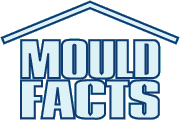Mold Symptoms
Mold symptoms may occur in sensitive individuals following mold exposure. Mold symptoms are generally allergic responses caused by inhaled mold spores and fragments. These types of responses are familiar to most people (stuffy or runny nose, sneezing, flu-like symptoms, wheezing). They are allergy symptoms. However, it is important to know that these allergy symptoms can have other causes (biological and non-biological indoor allergens) other than mold. Other biological indoor allergens may include dust mites, animal dander, and to some extent pollen.
If you or a member of your family experience hay fever-like symptoms that seem to disappear when you are out of the house, you may want to know whether mold is the cause by having your home tested for mold.
If there is visible mold growth in your house and you'd like to know whether the mold could be a type that's associated with mold allergy symptoms, you can find out for sure by sending samples to the lab for testing. To send samples download the sample submittal form, complete it with the required information and send it together with your samples to the address on the form.
Why Do Some People Suffer From Mold Allergy?
Mold allergy symptoms are allergic responses by the body trying to attack inhaled mold particles in the same way it would try to fight off any sickness. Mold allergies or sensitivity can develop in anyone exposed to mold over time. Therefore, if you notice visible mold growth, have it cleaned up and the underlying cause (source of moisture) identified and fixed.How Common Are Mold Allergies?
Mold allergies are very common. In fact, it is believed they're more common than pollen allergies. It is estimated that 2 people out of every 10 will react to normal spore concentrations and the other 8 would also react if exposed to high concentrations. Household molds commonly associated with allergy symptoms include Alternaria, Cladosporium, Aspergillus, Penicillium and Stachybotrys among others.If you or a member of your family experience hay fever-like symptoms that seem to disappear when you are out of the house, you may want to know whether mold is the cause by having your home tested for mold.
If there is visible mold growth in your house and you'd like to know whether the mold could be a type that's associated with mold allergy symptoms, you can find out for sure by sending samples to the lab for testing. To send samples download the sample submittal form, complete it with the required information and send it together with your samples to the address on the form.
Labels: Mold_allergy


